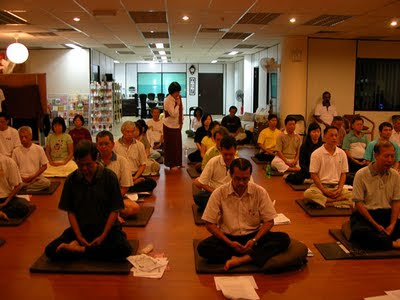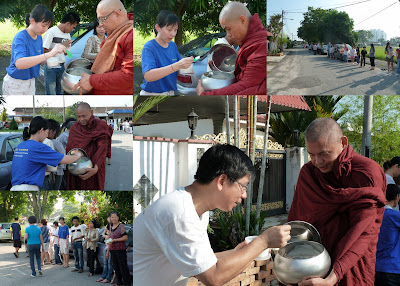| picture taken from http://t1.gstatic.com |
However when the rich man knew who his guests were going to be, he left his house and command his maid to only offer inferior food. When the monks arrived after taking laxatives (in order to eat a lot) they were disappointed.
When these monks went back to the monastery, the king can to see the monks. After paying respect to the monks the King speak to the monks but the monks refuses to speak to the King. After much persistence, the monks blamed the King for ignoring them and did not admonish the senior monk. The six monks asked the King to lie to the Buddha by saying the senior monk had seduced the King's wife.
The King said this to the Buddha The Buddha then called the senior monk and the six monks for questioning. The senior monk at first replied evasively but when the Buddha requested him to answered directly this senior monk replied that he did not even had sexual activities with any ladies even in his dream. This is true as this senior monk is an Arahant. the Buddha then said that if the monks were to encounter any person be it devotee or monks who has the eight fetters then they should turned their bowls upside down or must not accept any thing from them
What are these 8 fetters?
- He asks people not to offer anything to the Sangha
- He harms the monk physically
- He expels the monk from the monk' s dwelling
- He abuses the monk
- He causes schism among the monk
- He slanders about the Buddha
- He says bad things about the Dhamma
- He blames the Sangha


















